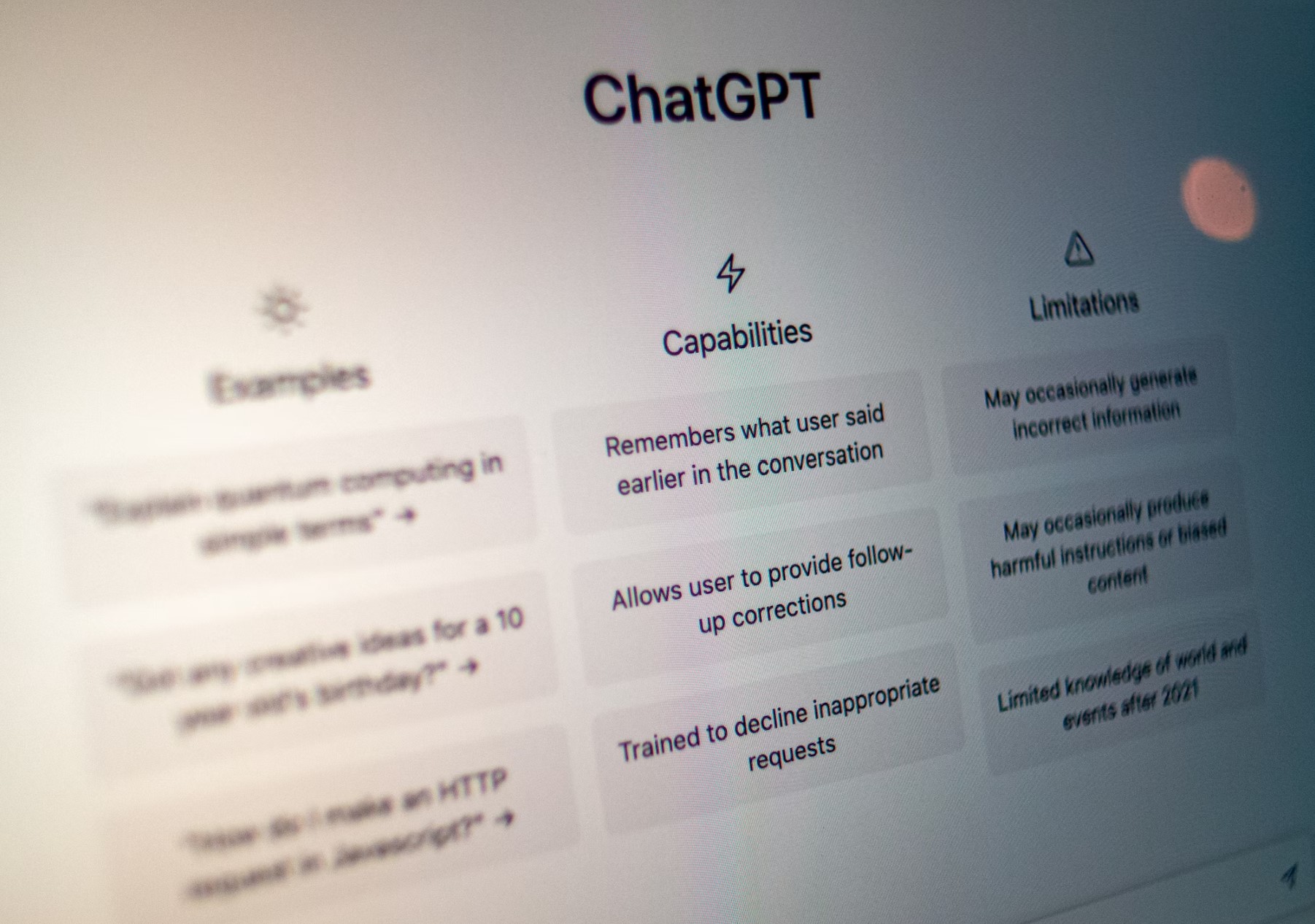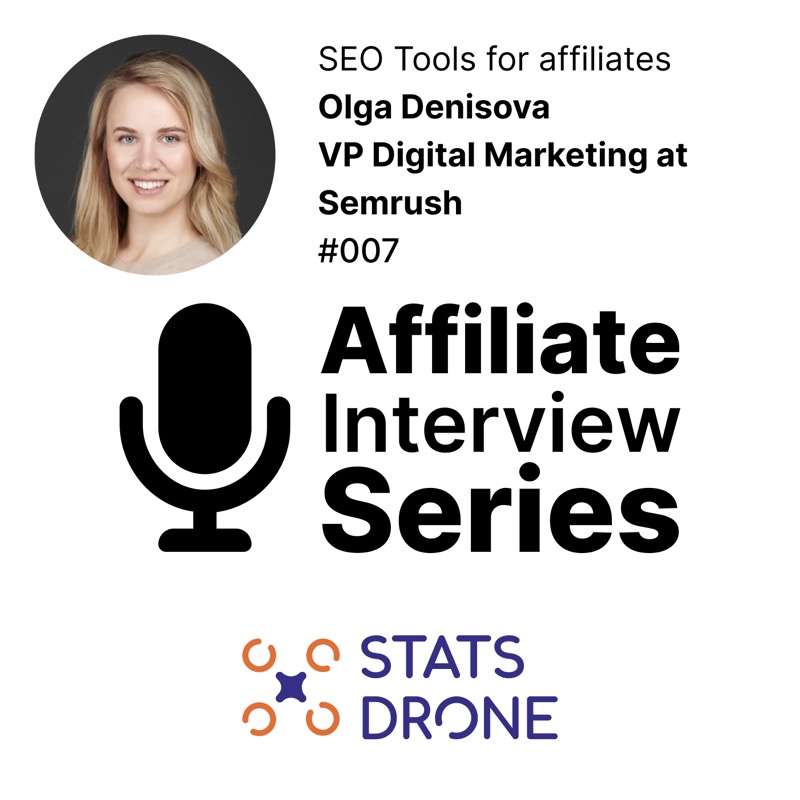AI for marketing: how AI will transform the future of marketing
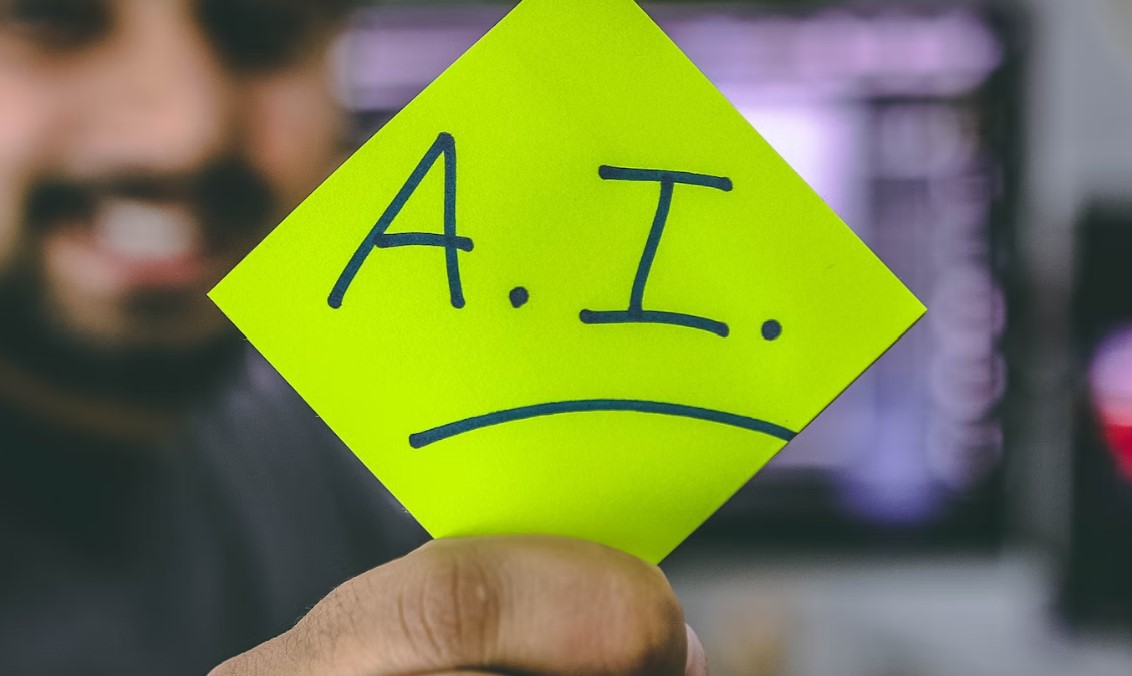
AI (artificial intelligence) for marketing uses machine learning and neural language processing techniques to analyze large amounts of marketing data and perform actions or make decisions based on it.
These tools can help companies improve their effectiveness in several areas, such as audience segmentation, content personalization, user experience optimization, marketing automation, and advertising campaign management.
For example, an AI can analyze consumer behavior patterns and use this data to recommend relevant products or services to users in real-time. It can also use this data to tailor website content or advertising campaigns to individual user preferences or needs.
In other words, AI for content creation and AI for marketing aims to optimize the effectiveness of marketing techniques, methods, and tools, reducing the execution time of many activities and thus providing users with a personalized and relevant experience.
Best 7 AI tools every company must know about
There are many AI tools for marketing on the market today, but here are seven of the best tools that can help you improve your marketing strategies:
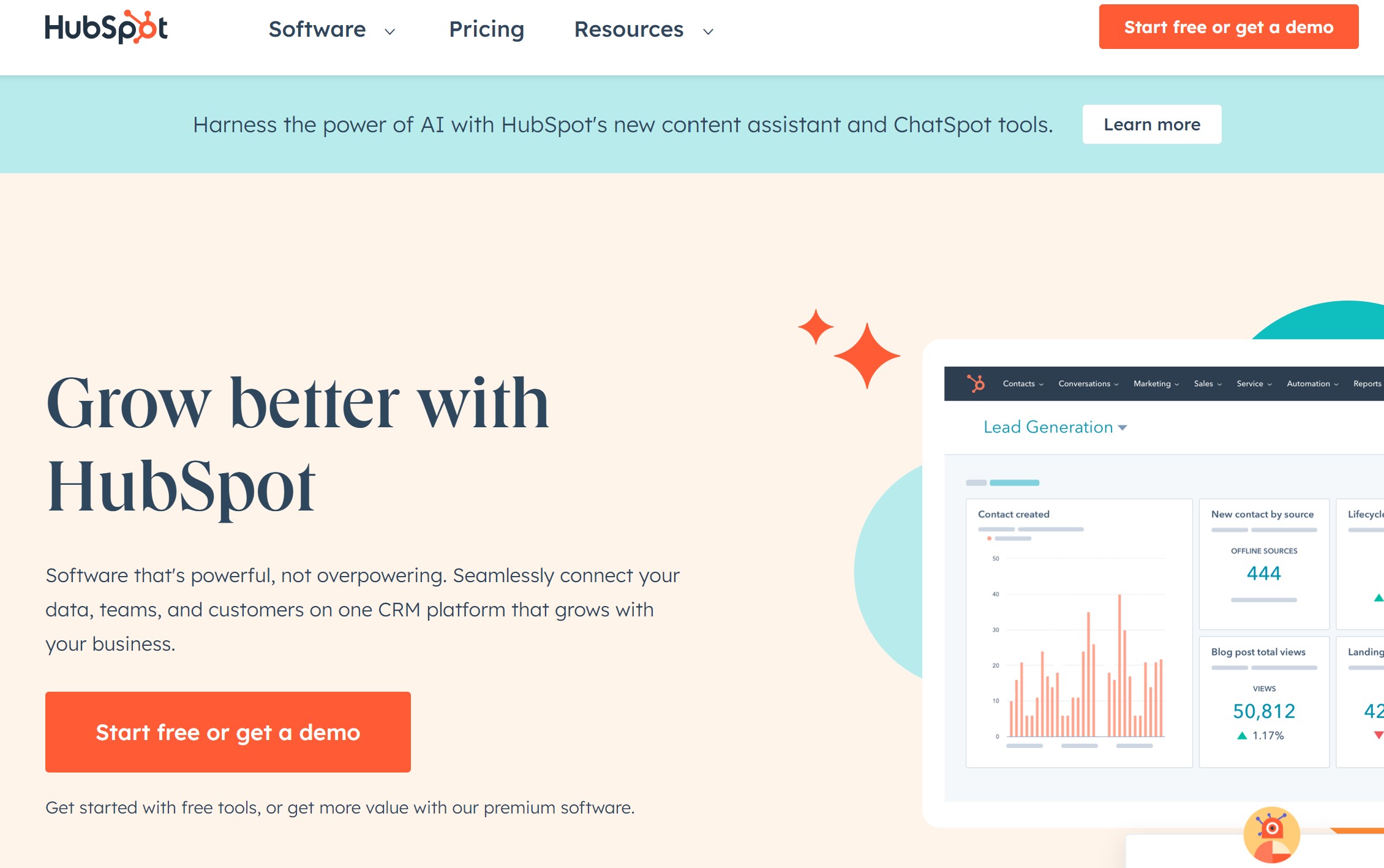
HubSpot: An all-in-one platform that offers marketing automation tools, CRM, content management, and more, all powered by AI.

IBM Watson: A powerful AI tool that can be customized to solve specific marketing problems, such as optimizing ad campaigns and personalizing content.
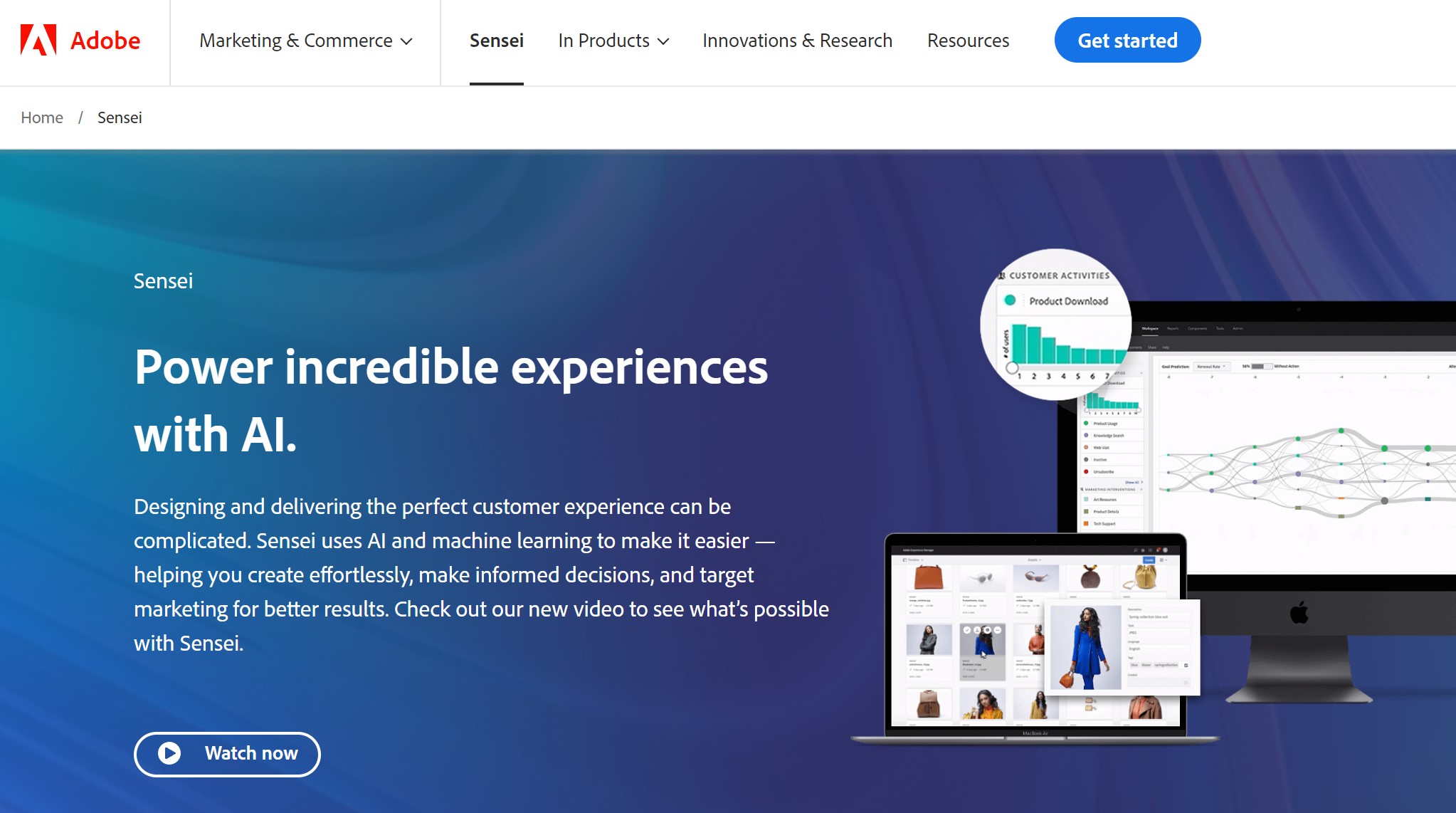
Adobe Sensei: An AI and machine learning platform that can help you improve user experience, personalization, and content optimization.
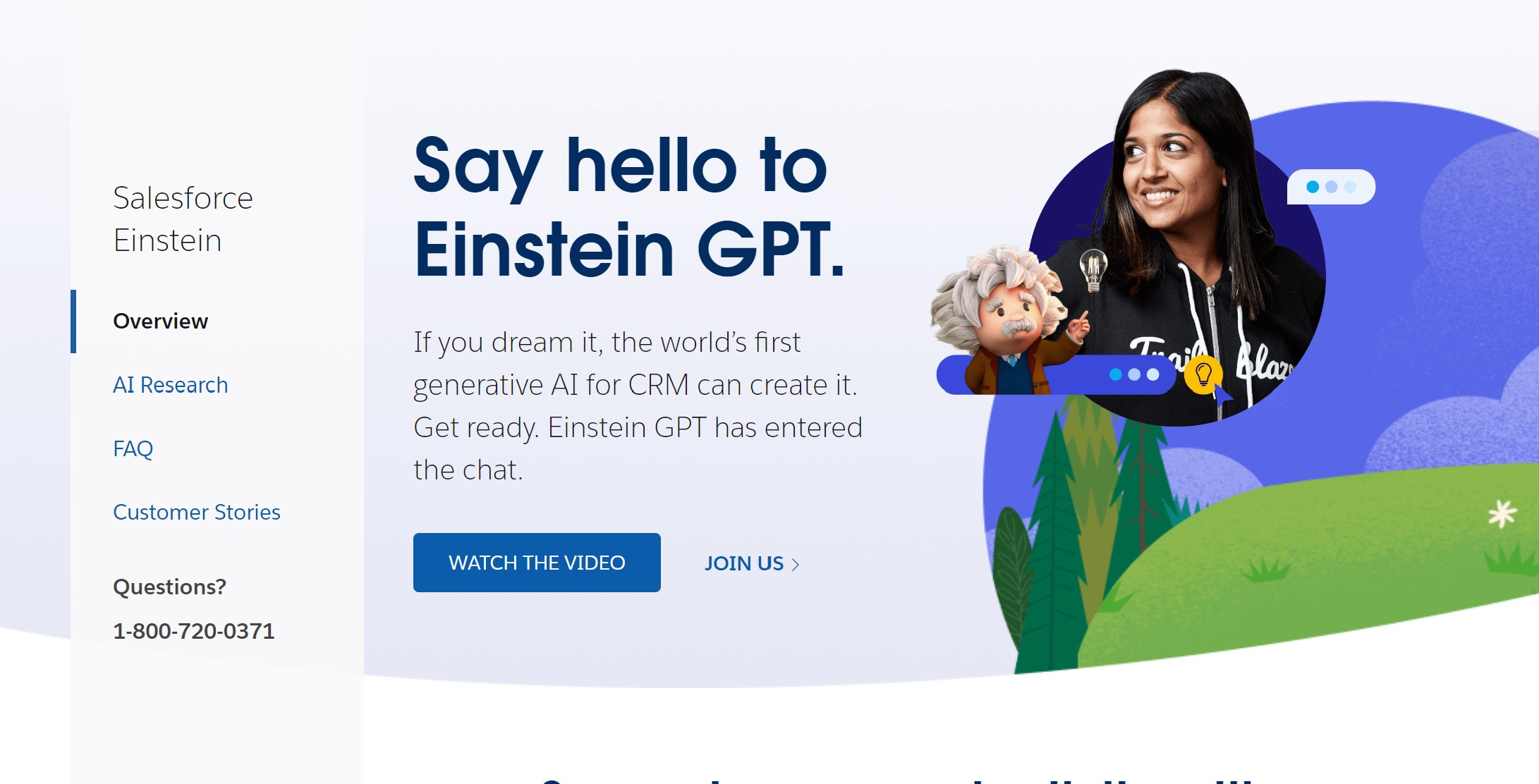
Salesforce Einstein: An AI tool that can help you make data-driven decisions, personalize the customer experience, and automate marketing tasks.
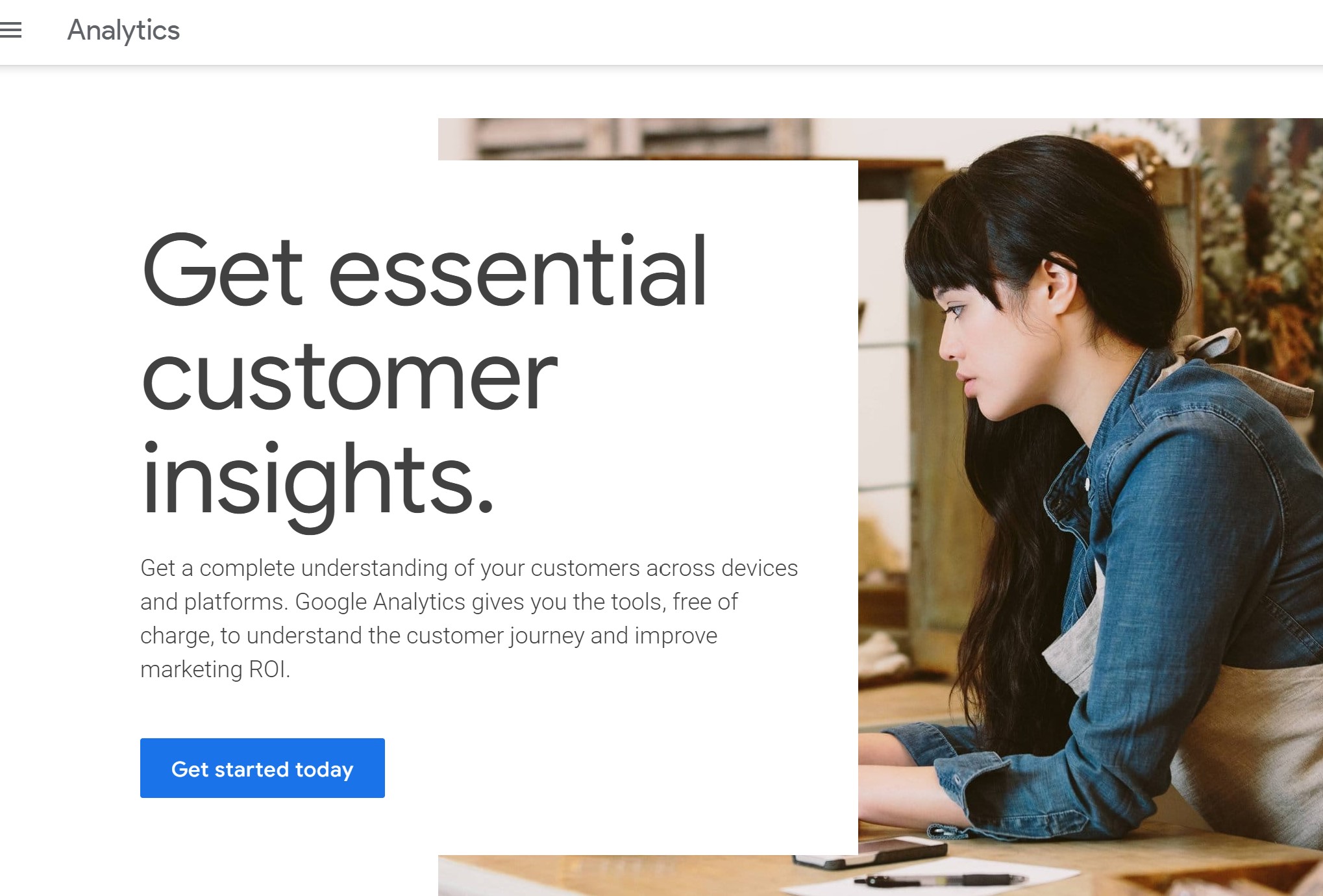
Google Analytics: A web analytics tool that uses AI to provide insights into user behavior, traffic patterns, and other essential marketing metrics.
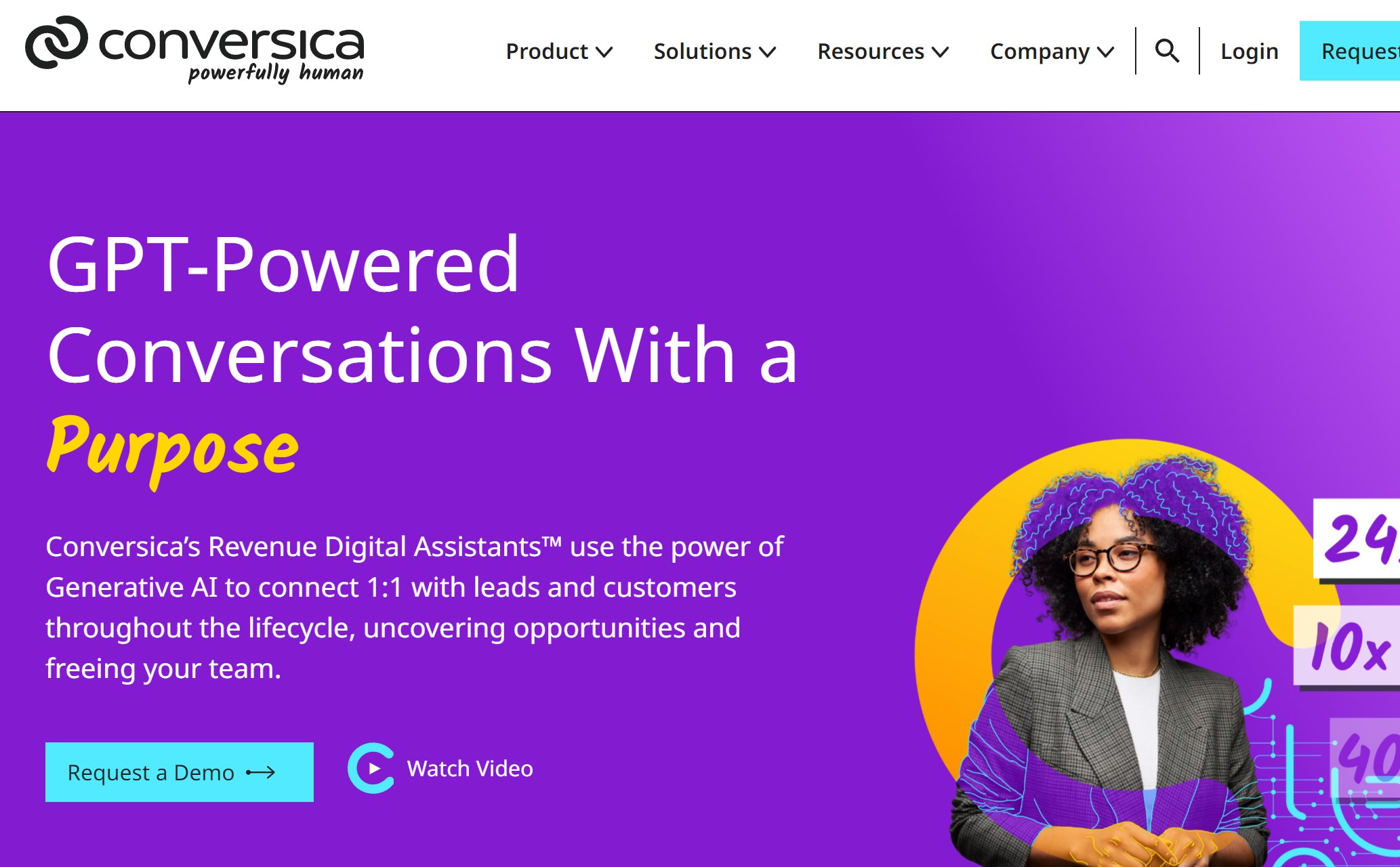
Conversica: An AI tool that uses chatbots to interact with customers and improve the quality of sales and leads.
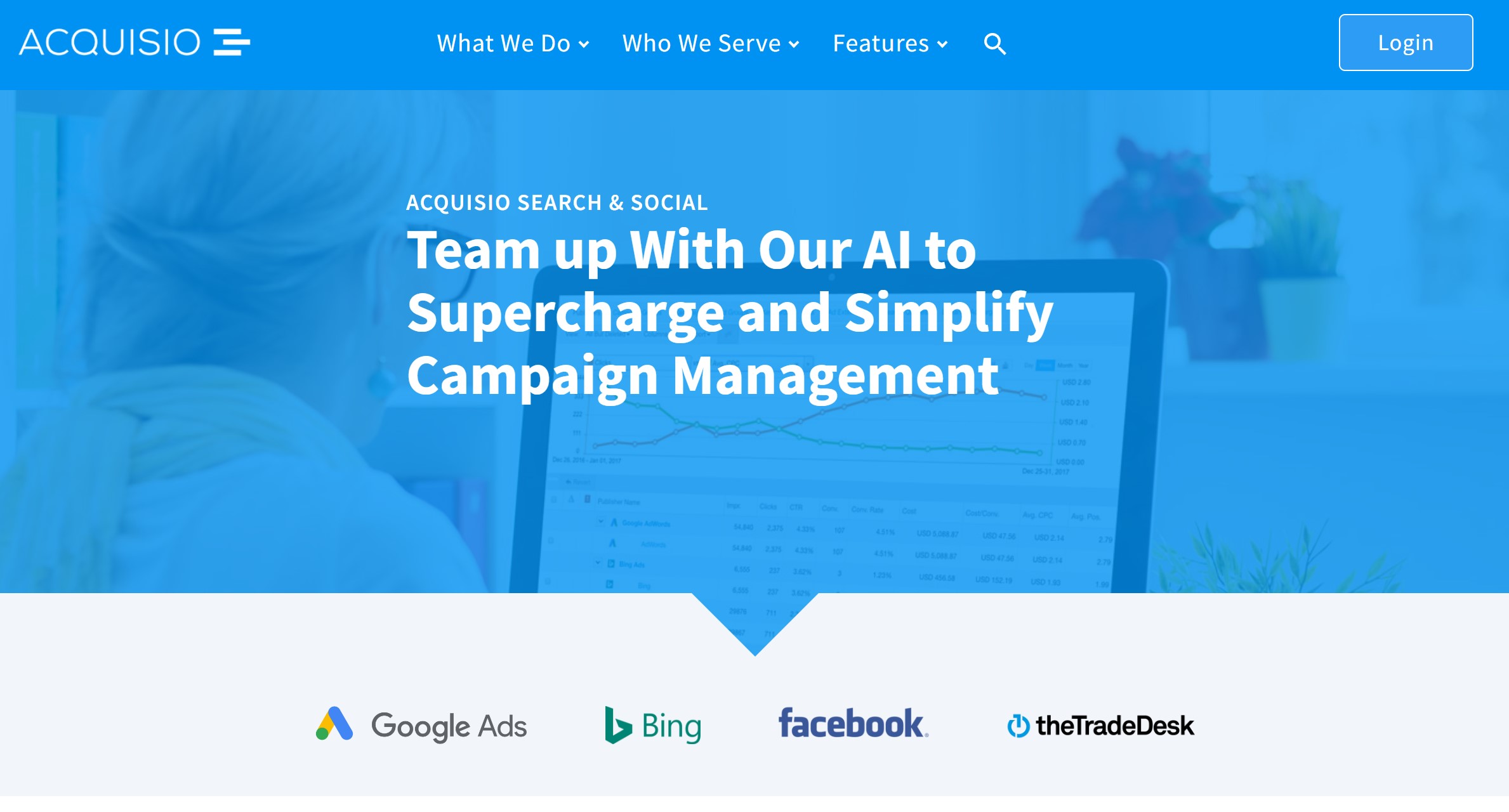
Acquisio: An AI tool that uses machine learning to optimize ad campaign management across multiple platforms and channels.
A considerable number of AI tools for marketing are available on the market. Choosing the right tool will depend on your specific marketing needs and budget.
How to promote a brand using AI marketing tools
There are many ways a brand can promote its product or service using AI tools for marketing, from content personalization to user experience, to automating various marketing processes.
Here are some practical examples of how AI can be used in marketing:
Content personalization: AI tools can help personalize website content, emails, ads, and other forms of marketing based on user behavior and preferences. For example, a brand can use an AI tool to recommend specific products to a user based on their past purchases or interactions on the website.
Optimizing the user experience: AI tools can help optimize the user experience on the website by improving navigation, load time, and product search. This can increase conversion rate and customer satisfaction.
Audience segmentation: AI tools can help segment the audience based on different criteria, such as geographic location, age, gender, and interests. This can enable the brand to target specific user groups with relevant marketing messages.
Marketing automation: AI tools can automate many marketing tasks, such as sending emails, posting on social networks, and managing social media or podcast advertising campaigns. This can save time and resources, allowing the brand to focus on other essential business areas.
As you can see, beyond completely replacing a process within marketing, AIs seek to optimize the time in which they are performed, how they are executed, or the result obtained.
AI marketing tools for everything you need!
Campaign Ads:
Advertising campaigns are often one of the most complex parts of promoting a product or service. AI shines the most in a task where information accuracy, optimization, and knowledge of user patterns are vital.
Below you will find several tools that use AI to ensure successful advertising campaigns:
Acquisio: This is an AI tool that can automate and optimize ad campaigns on various platforms, such as Google Ads, Facebook Ads, Instagram, and Bing Ads. It uses machine learning algorithms to adjust budgets, targeting automatically, and bid adjustments in real time, which can increase ad campaign ROI.
AdEspresso: It is a Facebook Ads AI tool that uses machine learning to optimize ad campaigns on Facebook and Instagram. AdEspresso can analyze ad performance in real-time and automatically adjust audiences, budgets, and targeting to improve ad campaign performance.
Phrasee: An AI tool that uses machine learning to create compelling and persuasive ad copy. Phrasee can analyze ad performance and generate personalized ad copy that resonates with the audience.
Content creation:
In the same way, content creation can be optimized with the use of AI tools; some examples are:
GPT -3: This is a state-of-the-art natural language model developed by OpenAI that can generate high-quality text in various topics and styles making ChatGPT a feasable tool for blogging. Users can provide a brief description or a task to be answered, and GPT-3 will automatically generate relevant content.
Canva: A graphic design tool that uses AI to help users create professional, personalized designs. Canva uses machine learning algorithms to provide design recommendations based on user preferences, such as fonts, colors, and layouts.
Lumen5: This AI tool can automatically convert blog articles into high-quality videos. Lumen5 uses natural language processing technology to extract key ideas from the paper, create a storyboard, and then use AI to select images and music for the video.
Data collection and segmentation:
AI tools are increasingly being used to segment and collect data, allowing marketers to gain valuable insights about their customers and improve the effectiveness of their campaigns. Some of the most common AI tools used for segmentation and data collection are:
Salesforce Einstein: an AI tool integrated into the Salesforce platform that uses machine learning to analyze customer data and provide personalized recommendations. Salesforce Einstein can help marketers segment customers by behavior, preferences, and other factors and personalize communication accordingly.
IBM Watson Studio: An AI platform that enables marketers to collect and analyze data from multiple sources, including social media data, website data, and sales data. IBM Watson Studio can help marketers identify patterns and trends in data, which can help improve targeting and personalization.
Google Analytics: A website data analysis tool that uses AI to provide valuable insights into website visitor behavior. Google Analytics can help marketers identify traffic patterns and behavior, which can help improve segmentation and personalization of communication.

How will AI marketing tools affect the future of marketing?
AI tools significantly impact the future of marketing, and their use is expected to grow in the coming years. Some of the important results include the following:
- Enhanced personalization: AI tools enable marketers to personalize the customer experience more effectively and accurately. AI can help collect and analyze large amounts of data to segment customers and deliver personalized, relevant messages.
- Task automation: AI can also automate many marketing tasks, such as data analysis, campaign management, and content creation. This helps reduce the workload of marketers and allows them to focus on more strategic tasks.
- Improved ROI: AI tools can help improve marketing campaigns' ROI (return on investment) by optimizing budget and marketing efforts. AI can analyze data to identify the best investment opportunities and minimize spending in areas that are not effective.
- Identifying patterns and trends: AI can also help identify patterns and trends in data, providing valuable insights for marketing decision-making. This can help marketers improve their campaigns and better adapt to the needs of their customers.
- Increased efficiency: AI tools can increase marketing efficiency by reducing the time it takes to perform tasks and automating tedious and time-consuming processes. This allows marketers to spend more time on creative and strategic strategies.
Emerging trends and challenges
Artificial Intelligence (AI) is changing the way digital marketing is done. Two emerging trends are personalization and automation, both enabled by AI.
Personalization involves collecting and analyzing data to deliver personalized content and experiences to consumers, which can improve the effectiveness of advertising campaigns.
Conversely, automation can save time and resources and improve the accuracy and effectiveness of campaigns.
However, using AI in marketing can also present challenges and concerns, especially data privacy and transparency.
Marketers must ensure that they comply with data privacy laws and regulations and that consumers have control over the use of their data. In addition, they must understand how marketing decisions are being made with AI and can explain them to consumers.
Overall, if used correctly, AI can significantly improve the effectiveness of marketing campaigns.
How to integrate conventional marketing tools with AI tools
Integrating AI tools into existing marketing strategies can be a challenging process, but it can offer significant long-term benefits.
One of the first steps is to identify problems or areas of improvement where AI could be useful—for example, automating audience targeting, optimizing ad campaigns, or personalizing content and experiences for consumers.
Next, it is essential to evaluate the AI tools available in the market and select the ones that best fit the specific needs of the marketing strategy. AI tools can be used to analyze large amounts of data, automate marketing tasks, or improve the personalization of the customer experience.
The next stage is implementing the AI tool into the marketing strategy. Ensuring the technical capability to integrate AI tools into existing systems is essential. Marketers should also familiarize themselves with the AI tool and ensure it is used correctly.
After implementation, it is vital to measure the success of the AI tool. Marketers should set measurable goals to evaluate the effectiveness of the AI tool and determine if it is improving the marketing strategy's results.

AI: The future of marketing
As time goes by, AI tools will evolve and become more and more sophisticated, allowing us to use them to our advantage to optimize any part of the process of making a brand, product, or service known.
However, we must always consider the challenges mentioned above to make the most of these tools, adapting to new processes, techniques, and tools that will emerge as the use of IA is implemented more regularly.
In conclusion, the future of IA, not only in marketing but in general, is exciting and promising. Very soon, we will see how to combine the traditional way we do our daily activities with the optimization and efficiency offered by such tools.
